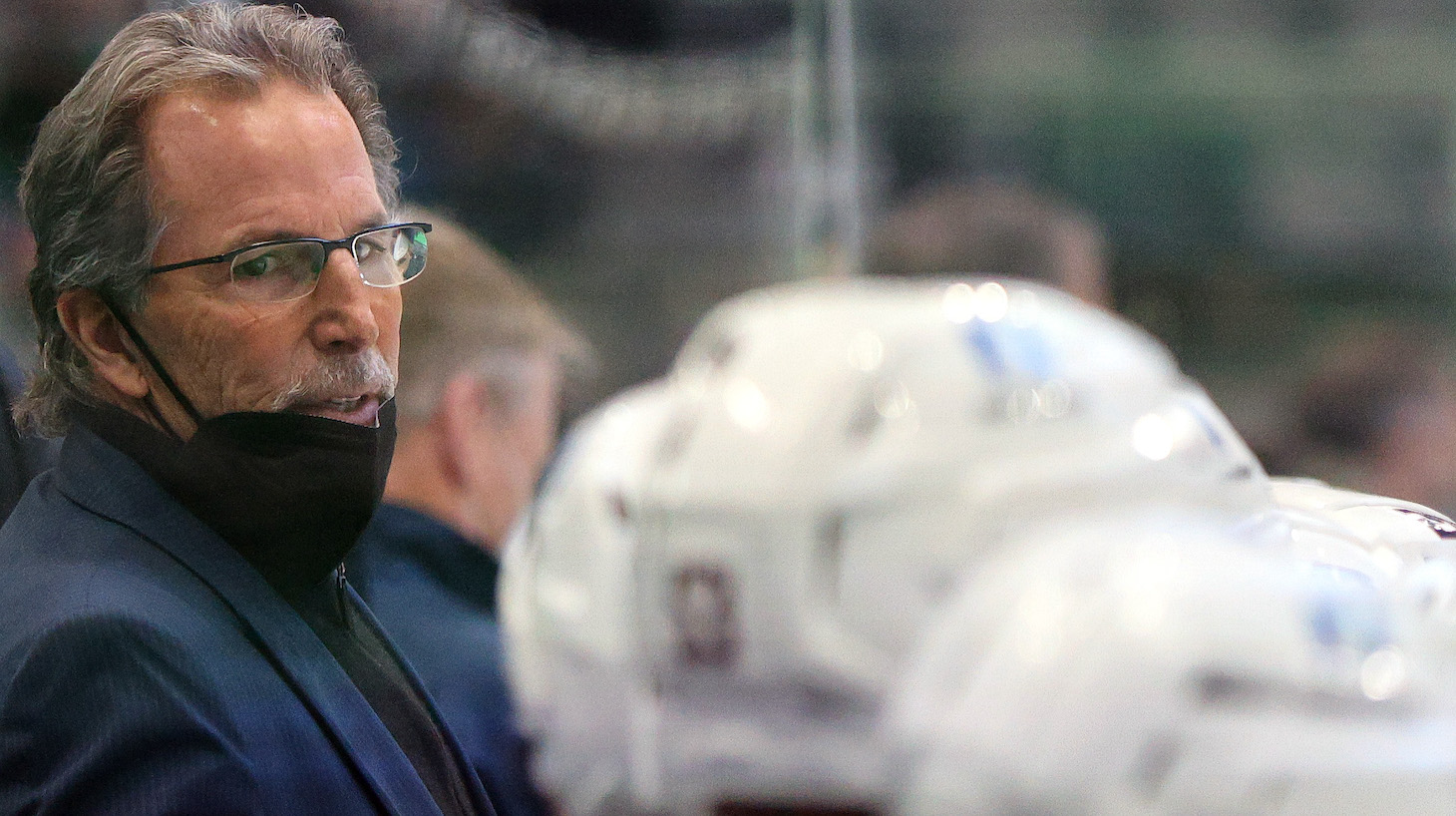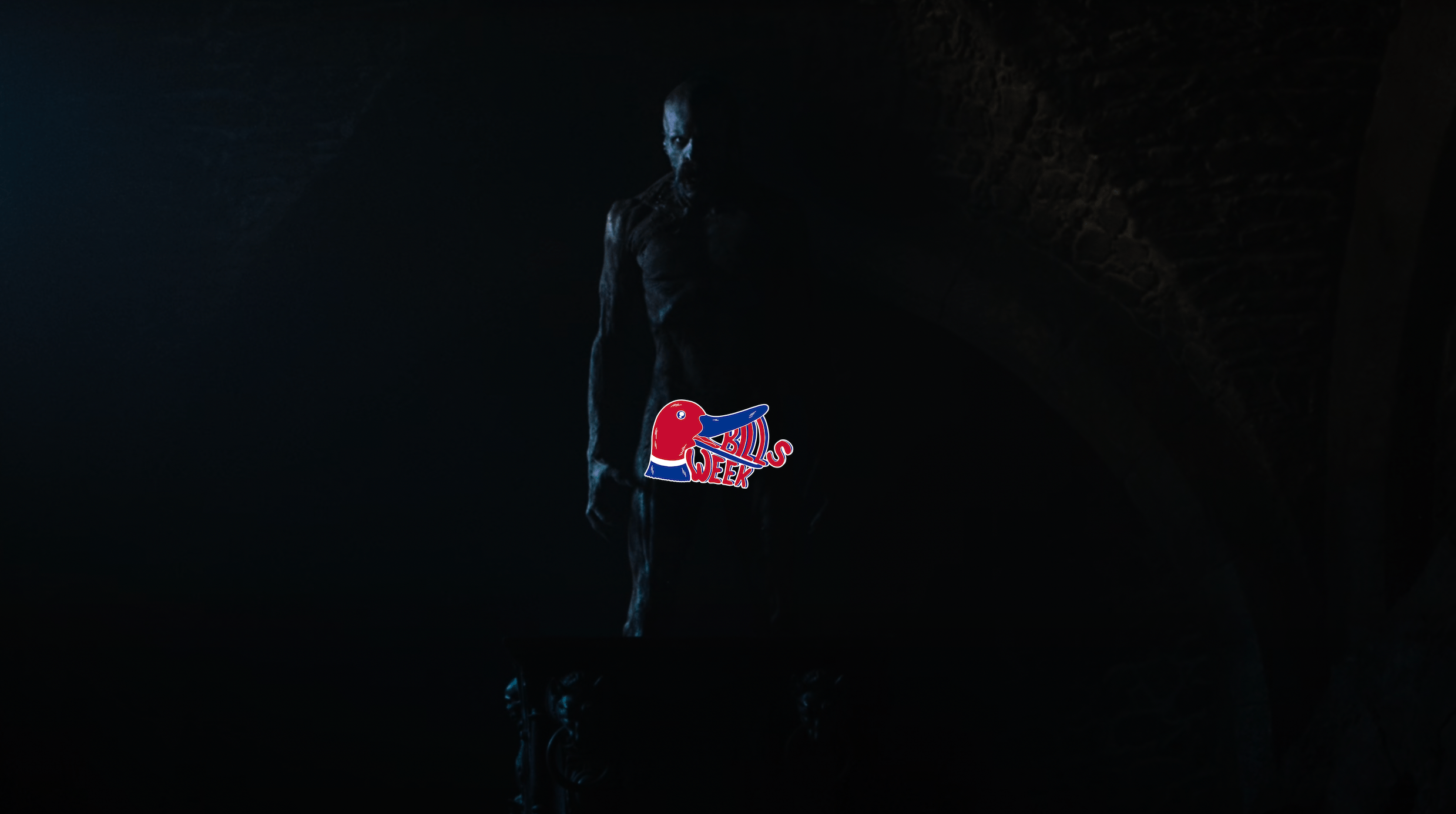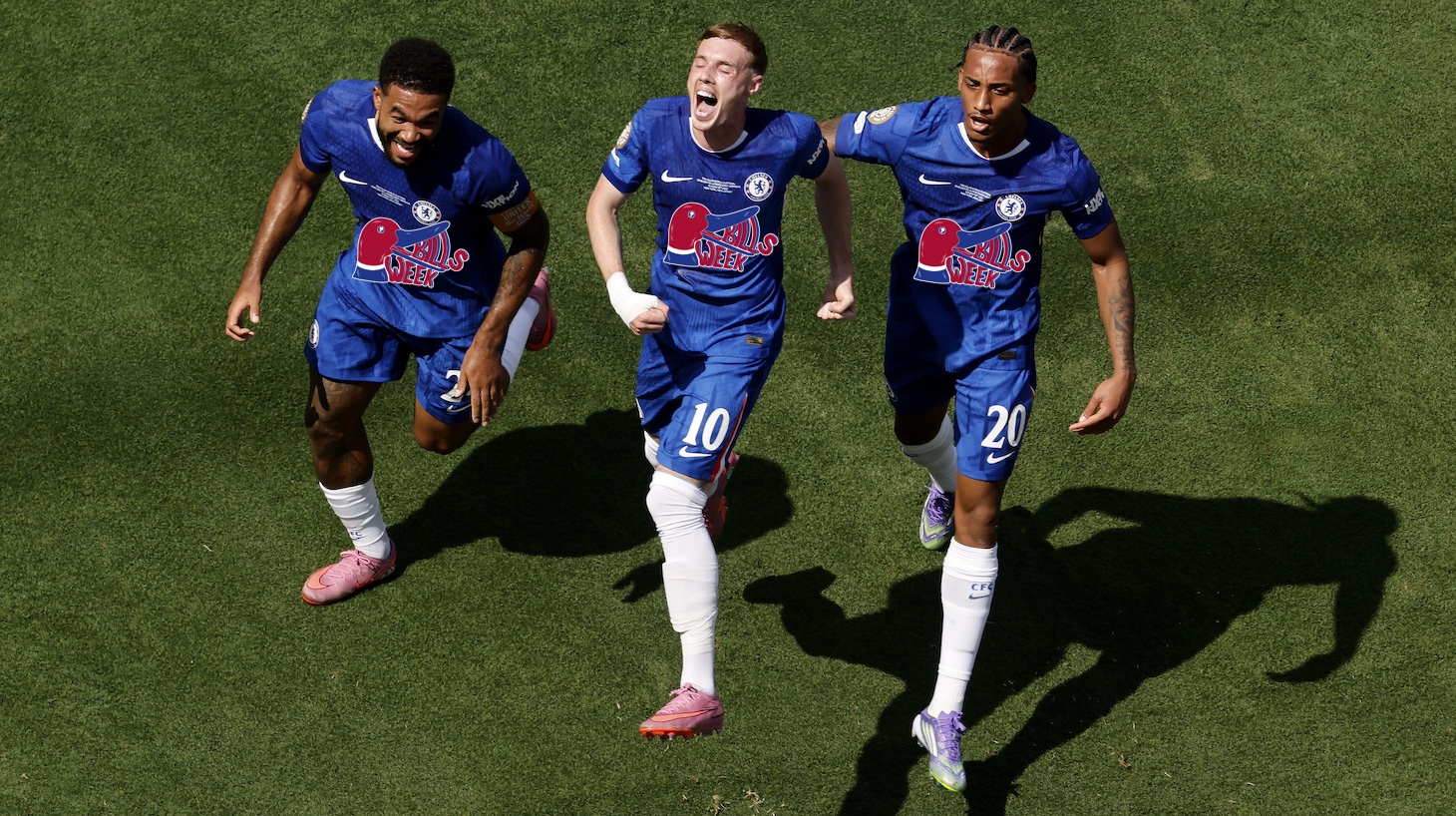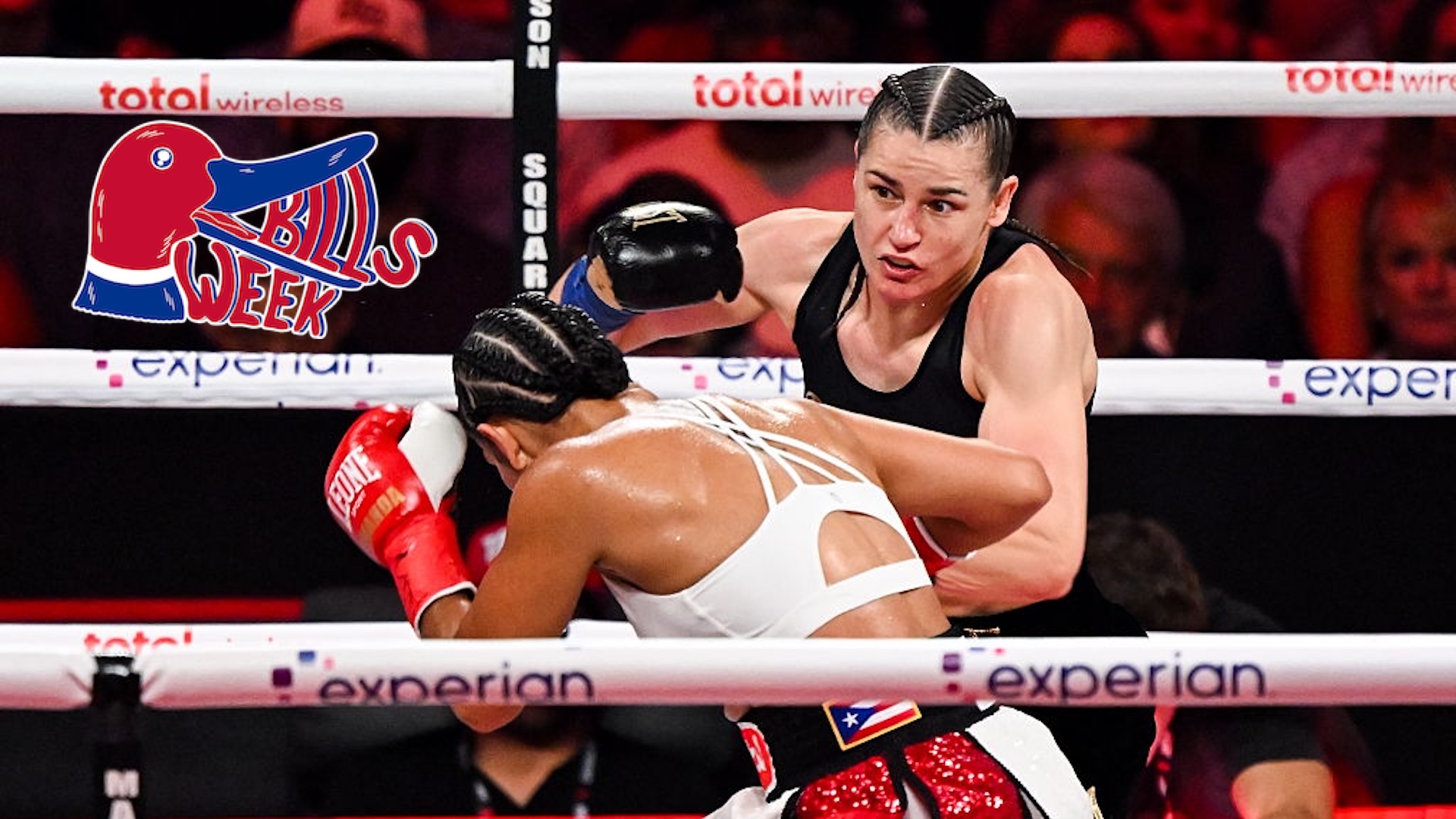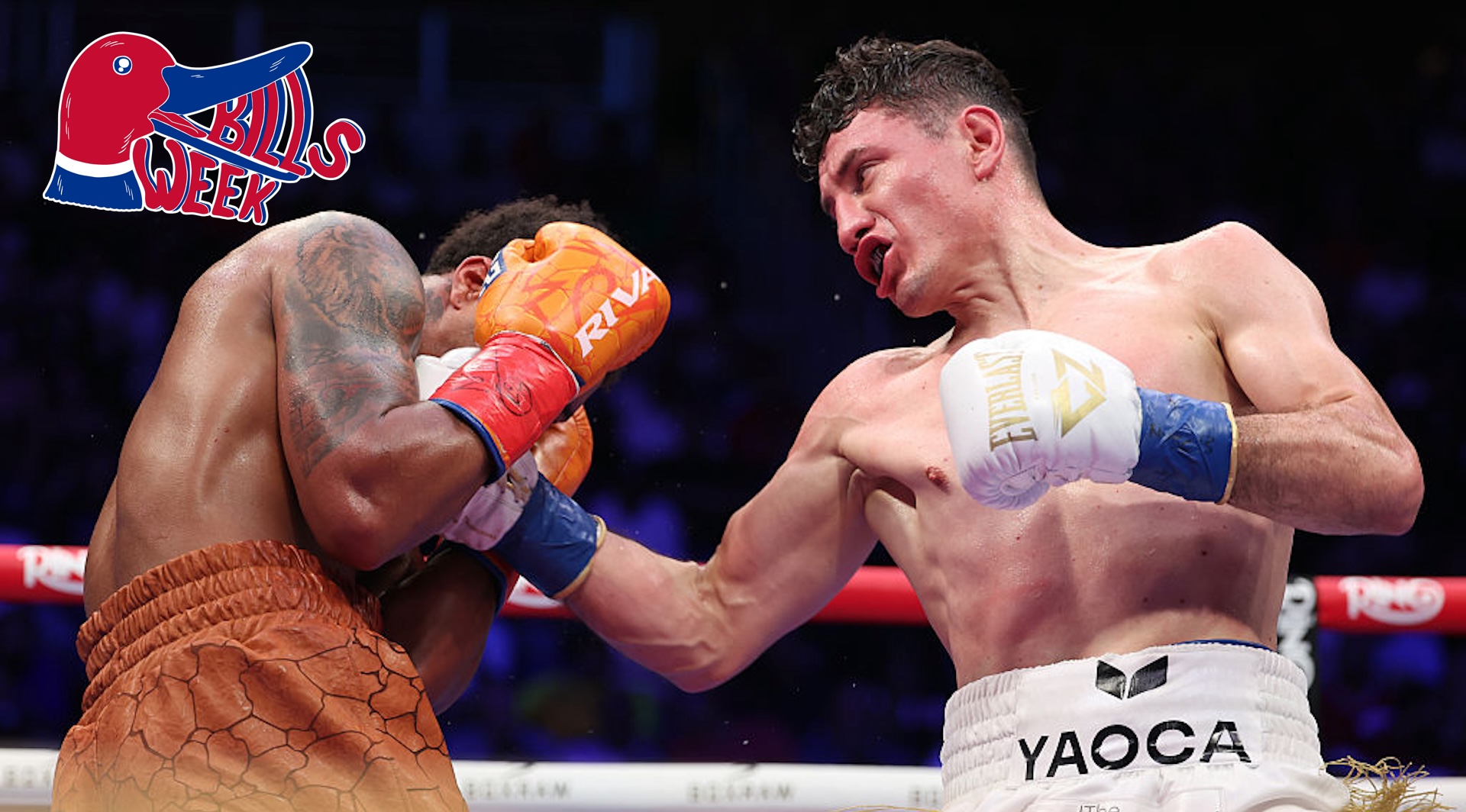The Tortorella Process goes like this: You hire John Tortorella to coach your woebegone franchise, usually both young and underachieving. And because the noted hard-ass doesn't countenance lollygagging or laxity, it works for a while. His teams play up to their potential for a few years, perhaps even beyond it. But it comes at a cost. The same inflexibility that squeezes every last drop of talent out of a roster also alienates his best players, who tend to force their way out of town or leave at the first opportunity. And no matter how hard his fourth liners skate, his teams can't make up for that lack of star power. They stagnate, and the vibes turn vaguely sour as players can only be inspired to run through a fucking wall so many times before they realize they're just banging their heads against cinderblock. Trust the Tortorella Process, because it never fails.
The Tortorella era in Columbus, which comes to an end with what sounds like one of the few true "mutual" partings in sports, was a moderately successful one, as far as they go. In his six seasons behind the bench, the Blue Jackets were 227-166-54 and made four straight postseason appearances after making just two in their first 14 years of existence. In 2019 they reached the franchise's high point by winning their first and to date only playoff series, sweeping the Presidents' Trophy–winning Lightning. I'm not saying his rousing pregame pep talk before Game 1 of that series is wholly responsible for one of the bigger upsets in NHL history, but I'm also not not saying it.
Tortorella, 62, is the winningest coach in Blue Jackets history, but that's still grading on a curve—and not the curve that optimistic front offices have repeatedly hoped for, dreaming that he could recapture the lightning-in-a-bottle magic of his 2004 Cup champs in Tampa. One playoff series win in six years, even if it was unprecedented success for this franchise, isn't objectively good enough in any version of the NHL for Tortorella to earn a new deal after his contract expires at the end of the season. (And on the other end of things, putting up with mediocrity may not have been worth it for him. The Blue Jackets notoriously pay coaches below-market salaries, and Tortorella was earning $2.5 million a year in a league where the top coaches routinely get $4 million.)
You can't say Tortorella didn't live up to his reputation in Columbus. He repeatedly clashed with his stars, be they Ryan Johansen or Sergei Bobrovsky or Artemi Panarin or Pierre-Luc Dubois. This season's Dubois saga felt like Torts playing the hits: the disgruntled center, having already demanded a trade, sleepwalked through a few too many shifts for Tortorella's liking, and was benched a few too many times for Dubois's liking. The situation was untenable, and Dubois was dealt in a blockbuster deal for the similarly talented, similarly discontented Patrik Laine. It didn't take very long for Laine, a relatively one-dimensional scorer, to find himself riding the pine as punishment for indifferent defense. That was Tortorella in a nutshell: demanding that all his players, no matter their strengths and weaknesses, fit neatly into his idea of how a hockey team should play.
Never really an Xs and Os guy, Tortorella instead operated on principles of faith and effort. You had to unreservedly buy into his system, no matter who you were or how much you were making. You had to backcheck on every shift, no matter how many points you had. It's a leadership strategy that perhaps works better in theory than in practice, because it never seemed to accept that hockey players were human. They take shifts off. They expect to be treated differently based on their skills and their prestige. You can treat a star the same way you treat a checking liner, but only if you're willing to estrange that star as the price for inspiring your depth forwards. Modern NHL coaches almost invariably are not willing to pay that price, and understandably so. Tortorella always was.
Last week, The Athletic's Aaron Portzline spoke to a handful of former Blue Jackets to try to pin down exactly what's wrong in Columbus, and Tortorella came off better than I expected (though that of course may be a function of which former players were willing to talk). "Torts would just as soon call out Bob or Panarin or Cam as he would Lukas Sedlak or whoever on the fourth line," one player said. "I had a ton of respect for that. I respected the hell out of that."
But you can't win without stars, no matter how older hockey types romanticize the (false) notion that it's possible or preferable to have or succeed with 23 grinders. And players will only buy into any philosophy for exactly as long as they can win with it. The 2021 Blue Jackets were clinging desperately to playoff contention in mid-March before going into a 2-13-3 skid. The buy-in was lost. Tortorella's mandate had expired. This divorce was always inevitable; the question was how good the good times would be before it arrived. Good enough to make Tortorella the fourth-longest tenured NHL head coach, it turned out, but not good enough to make a conference final, and not good enough to prevent this coaching stint from ending as unhappily as all the others.
I don't think Tortorella's schtick flies in today's version of the sport, but I also don't think it's ever been anything other than earnest. There's something to be said for that, a brutal honesty coming from a genuine place. Because Tortorella was genuine. Hockey fans might remember Liam Traynor, the 10-year-old Rangers superfan with cerebral palsy profiled in 2012's 24/7. Tortorella had befriended Traynor two years earlier at a charity event, and had more than kept up his end of the friendship. He got Traynor tickets to the 2012 Winter Classic in Philadelphia, and arranged transportation for the boy. I covered that game, and when the dressing rooms were opened to the media, it was requested that cameras at first not be admitted. I walked in to find Traynor and Tortorella engaged in deep conversation. They talked for probably 15 minutes, with no press around them, and no cameras capturing the moment, before the boy went on his way and Tortorella spoke to the press. Just from body language, this was Tortorella at his most unguarded, and he looked happier and more relaxed than I've seen him before or since.
Traynor's 19 years old now, and a sled hockey player. His friendship with Tortorella hasn't waned; the two still text every day. But even Traynor, who knows better than anyone how deep Tortorella's loyalty can run, could get exasperated with the coach. He called Tortorella's cellphone one day to demand an explanation for why his favorite player had been demoted to the AHL. “He told Liam, ‘it’s part of the process,’” Traynor's mom said.
